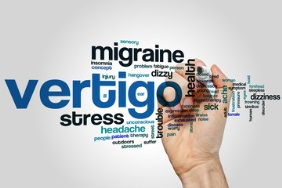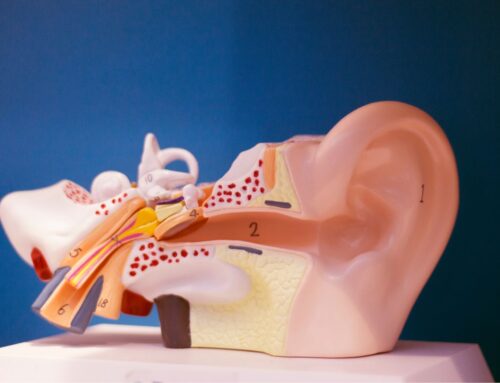No doubt, it can be confusing. Even perplexing.
While they share some similarities, there are also basic differences between dizziness, vertigo and disequilibrium.

Today we’re going to clarify and simplify these for you.
Understand that you’re not alone. It’s a common misconception that dizziness, especially extreme dizziness, is the same as vertigo. But that’s not the case. While they often share common causes, their definition, and how they may make you feel, are different and important for anyone seeking treatment to understand.
Let’s look together at the differences between the three types of occurrences. Consider the following:
Dizziness – has a feeling of lightheadedness
Vertigo – has a sensation that the room is spinning, or you are spinning within the room
Disequilibrium – refers to a loss of balance
The similarities they may share:
- All are considered symptoms that can become an issue. Severity doesn’t discriminate between an isolated incident and a chronic reoccurrence.
- Typically these are not a disease by themselves; rather they can occur as the consequence of another condition.
- They may have similar origins. Often the culprit is an inner ear disorder that may cause loss of balance and distorted spatial information.
- Fear of an occurrence often puts limitations to physical and social activities.
- They can lead to falls and other injuries.
- All can result in a loss of quality of lifestyle.
Although they may have similar roots, it’s important to provide a greater understanding of the differences between dizziness, vertigo and disequilibrium.
So let’s take a closer look:
Dizziness
This is the sensation of feeling unsteady, lightheaded, or faint. Many describe it as having a funny feeling in the head. Nothing is spinning. One of our patients, Mark Cuban, described it as just feeling “off”.
- Though dizziness can occur in people of any age, it is more common among older adults.
- Dizziness is a common symptom that leads to more than 8 million doctor visits each year.
- Dizziness can range from being slightly uncomfortable to severity that makes it impossible to walk or drive safely.
- Often ‘dizzy’ is used to mean feeling slightly disoriented or fatigued.
Vertigo
Is a feeling that you or your surroundings are moving – when there is no actual movement. There is a spinning feeling.
- The rotational component is often described as the room ‘spinning’, or a sensation that the world is spinning around you. (Either you are still and the world is spinning, or that the world is still but you are spinning.)
- You may feel like you are off-balance; spinning; whirling; falling or even tilting.
- Patients describe the feeling as if they had recently been on a fast merry-go-round.
- If things aren’t spinning, then describing it as “having vertigo” would be inaccurate.
- Vertigo can cause great discomfort and is a primary reason patients seek assistance.
Vertigo is caused by either a problem in the inner ear, or within the brainstem. It occurs when there is conflict between the signals sent to the brain by various balance and position-sensing systems in our body. Our brain uses input from four sensory systems to maintain a sense of balance and orientation to our surroundings.
Vertigo associated with the inner ear is known as peripheral vertigo. While peripheral vertigo can keep a patient from walking or driving safely, most of the causes of peripheral vertigo are not particularly dangerous. Vertigo is often a result of an inner ear disorder, such as BPPV (Benign Paroxysmal Positional Vertigo); Ménière’s Disease; Vestibular Neuritis or Labyrinthitis. Vertigo is also tied to Migraine headaches, as we recently shared in our blog.
If vertigo is not associated with the inner ear, it is likely deemed central vertigo, and further treated by a physician specializing in the brainstem.
Disequilibrium
This is the sensation of not being able to maintain balance.
- Patients describe an inexplicable stumbling when trying to walk…and may veer to the left or right.
- It’s a loss of balance or unsteadiness that is accompanied by spatial disorientation.
If you’ve been increasingly off-balance lately or experiencing symptoms, we can assist you. Any changes should be discussed with our doctors of audiology. We are highly-qualified vestibular physiologists, extensively and specially trained to treat dizziness, vertigo and balance issues. Our clinical staff is conveniently available and close by –simply one phone call, website click, or office visit away.
We understand what you’re feeling. We provide patients direct access to Advanced Vestibular Treatment™ (AVT) that is solely directed by our doctors of audiology. AVT targets and treats specific problematic areas within the visual, somatosensory and vestibular systems, rather than treating the vestibular system alone.
Please see us as soon as possible if your balance issues:
- Start suddenly
- Are associated with a change in position
- Are not caused by something known to provoke dizziness, such as medication, alcohol or lack of food
- Includes symptoms of vertigo
I encourage you to seek emergency care immediately if issues are associated with any other signs, including double vision, tingling, numbness, weakness, facial droop or difficulty swallowing.
It’s important to be as specific as possible about what you are feeling. It’s not always easy. And while I’ve described many of the most common feelings, sometimes a person has a combination of symptoms, or something that doesn’t quite match a category. I hope this opportunity to share information furthers your understanding about dizziness, balance and disequilibrium issues. Preparing in advance for questions that a medical professional is likely to ask, may best assist you on your road to recovery.
Thanks for reading and sharing. Until next time,
Dr. Mango






Leave A Comment